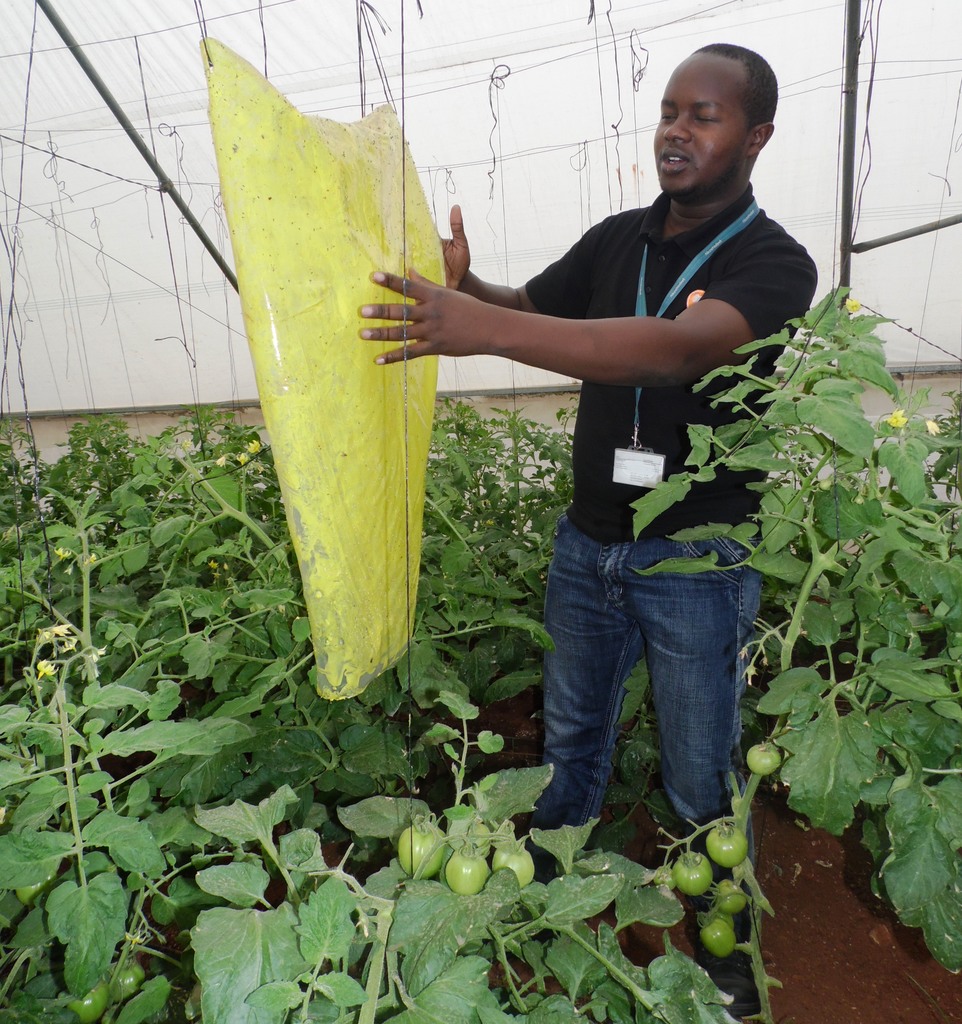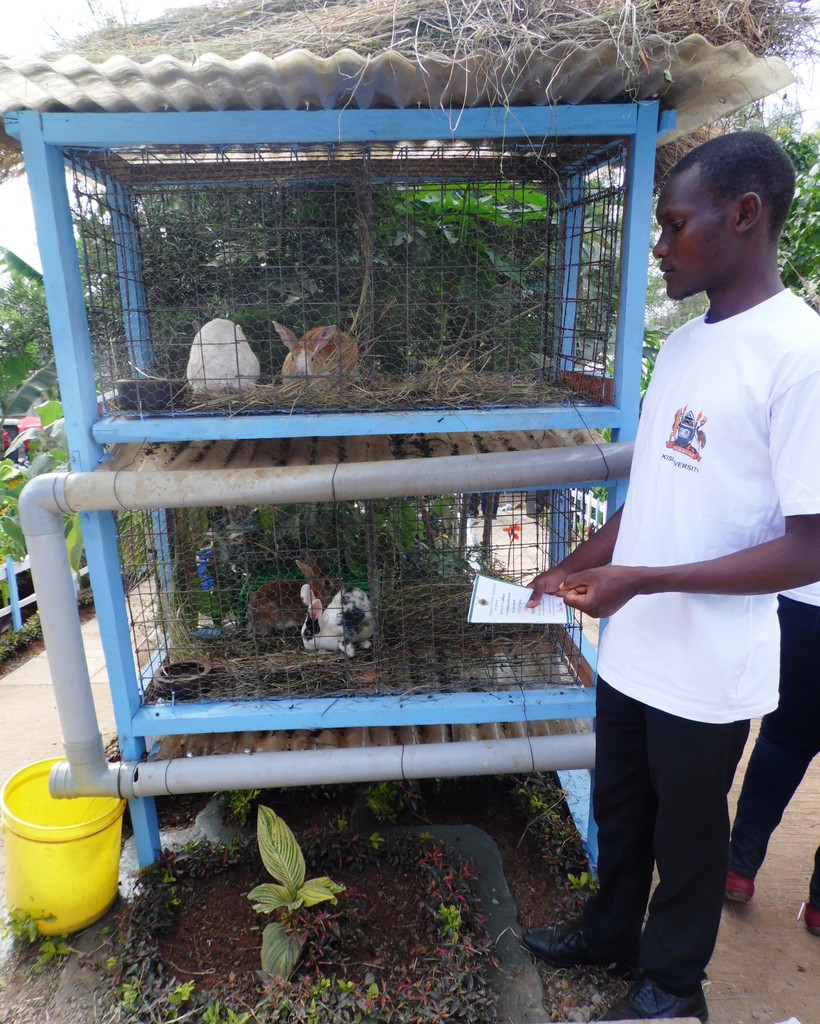Feeding fish on kitchen food remains can cause death within days due water contamination resulting from decaying matter in backyard ponds, a livestock expert has warned.
Speaking when he visited a fish farmer, who lost more than 300 fish in a week, Nyamira North Sub-county Livestock Officer David Atuya said accumulation of the food remains causes blockage of respiratory surfaces.
“Food remains decay when they are not consumed by either fish or other organisms in the water. Apart from the gruel-like substance blocking the gills from carrying out normal respiration, the odour released reduces oxygen concentration. Suffocation is the main suspect reason for the deaths,” he said.
Nyambane Mang’era harvested only 125 fish out of the 500 fingerlings earlier stocked in his 8m by 4m backyard fish pond.
A keen look into the pond could have warned Mang’era of the imminent loss, Atuya said, adding that the farmer could have seen the fish grasping for fresh air close to the water surface.
Feeding fish on kitchen food remains can cause death within days due water contamination resulting from decaying matter in backyard ponds, a livestock expert has warned.
READ ALSO: Two chickens and two rabbits multiply 50 fish weight in six months
Speaking when he visited a fish farmer, who lost more than 300 fish in a week, Nyamira North Sub-county Livestock Officer David Atuya said accumulation of the food remains causes blockage of respiratory surfaces.
“Food remains decay when they are not consumed by either fish or other organisms in the water. Apart from the gruel-like substance blocking the gills from carrying out normal respiration, the odour released reduces oxygen concentration. Suffocation is the main suspect reason for the deaths,” he said.
Nyambane Mang’era harvested only 125 fish out of the 500 fingerlings earlier stocked in his 8m by 4m backyard fish pond.
READ ALSO: This is what could be killing Kirinyaga’s catfish farming prospects
A keen look into the pond could have warned Mang’era of the imminent loss, Atuya said, adding that the farmer could have seen the fish grasping for fresh air close to the water surface.
Killer food
As a cheap way of getting fish feed, he resorted to ugali remains to for substitute for commercial feeds, which he said were not readily available at his nearby Magwagwa market and Nyamira County headquarters.
Excess feeds of even the normal commercial feeds causes the same losses.
READ ALSO: Wooden backyard pond keeps off fish predators
The livestock production officer warned that backyard fish ponds, which do not have constant water inflow and outflow, are prone to food poisoning because of the accumulation of unused feeds as well as excrements.
Mang’era noticed the one by one floating of the fish and upon close scrutiny, he realised the water was turning pale white because so the accumulation of the ugali sediments at the floor of the pond.
“The water was ‘horrible’. I even wondered how the few fish I later harvested in April, 2016 survived the stench,” the farmer said.
Atuya said feeding the fish once a day is sufficient because they grab insects and other small invertebrates in the water for food.
Ponds not located near rivers where water is constantly flowing in and out must be drained regularly, depending on the size of the pond and the stock number.
Replenishing at least 20 per cent of the total volume of water per week reduced dangers of accumulation of toxins from excrements and the pond surrounding environments.
READ ALSO: Tank fish farmers can purify water for reuse with Sh75,500 kit
Suspending greens onto the water surface also allows for the fish to pick the leaves alone, therefore reducing accumulation of matter that will rot later, Atuya said.
As a cheap way of getting fish feed, he had resorted to ugali remains to for substitute for commercial feeds, which he said were not readily available at his nearby Magwagwa market and Nyamira County headquarters.
Excess feeds of even the normal commercial feeds causes the same losses, the animal health officer said.
The livestock production officer warned that backyard fish ponds, which do not have constant water inflow and outflow, are prone to food poisoning because of the accumulation of unused feeds as well as excrement.
Horrible odour
Mang’era noticed the one by one floating of the fish and upon close scrutiny, he realised the water was turning pale white because so the accumulation of the ugali sediments at the floor of the pond.
“The water was ‘horrible’. I even wondered how the few fish I later harvested in April, 2016 survived the stench,” the farmer said.
Atuya said feeding the fish once a day is sufficient because they grab insects and other small invertebrates in the water for food.
Ponds not located near rivers where water is constantly flowing in and out must be drained regularly, depending on the size of the pond and the stock number.
Replenishing at least 20 per cent of the total volume of water per week reduced dangers of accumulation of toxins from excrement and the pond surrounding environments.
Suspending greens onto the water surface also allows for the fish to pick the leaves alone, therefore reducing accumulation of matter that will rot later, Atuya said.
PHOTO: Nyamira County farmer, Nyambane Mang'era, cleans his 8m by 4m backyard fishpond on August 14,2016. He lost more than 300 fish after feeding them with kitchen remains. Looking on are Ezekiel Ndege and Nyamira North Sub-county livestock production officer David Atuya (in red cardigan). PHOTO BY LABAN ROBERT.
Write comment (0 Comments)

















